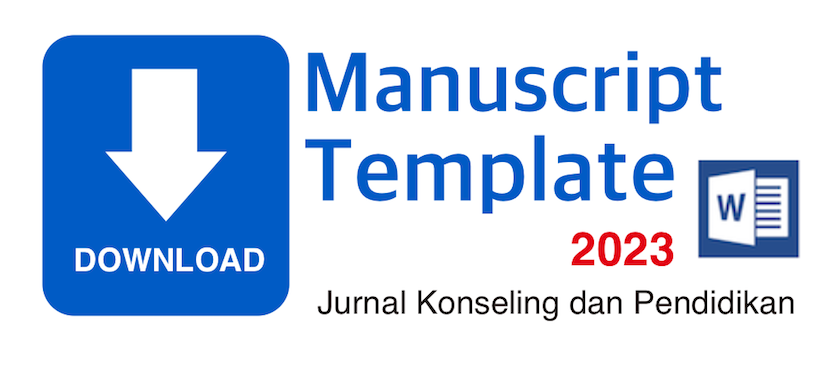Hubungan Pola Asuh Orangtua dengan Motivasi Belajar Remaja
 ), Evi Fitriyanti(2), Sri Utami(3),
), Evi Fitriyanti(2), Sri Utami(3), (1) Universitas Indraprasta PGRI, Indonesia
(2) Universitas Indraprasta PGRI, Indonesia
(3) Universitas Indraprasta PGRi, Indonesia
 Corresponding Author
Corresponding Author
DOI : https://doi.org/10.29210/118700
Full Text:
 Language : en
Language : en
Abstract
This research is based on parents' thinking is an important learning motivator for children, including in adolescence, because the family is the first and main environment. Provision of appropriate parenting patterns should also follow a good child's learning motivation. This study aims to determine whether there is a significant positive relationship between the pattern of care with motivation in learning, and knowing where old parenting patterns have the motivation to learn. The research design used herein is correlative with the method. Data taken by using closed questionnaires. Data were analyzed using Spearman's rho test. With this method researchers collect as much data as possible about the dimensions of motivation to learn, then do the analysis of these dimensions to get the complete data and as objective as possible with the pattern of care and motivation to learn adolescents. Testing is done by t test. Based on the data analysis can be concluded there is a significant relationship between the pattern of care with adolescent learning motivation with a contribution of 18.8%, where again increased adolescent learning motivation caused by other factors.
Keywords
References
Djamarah, Syaiful B. (2014). Guru dan Anak Didik dalam Interaksi Edukatif. Jakarta: Rineka Cipta.
Djiwandoko, Sri Esti Wuryani. (2006). Psikologi Pendidikan. Jakarta: PT Grasindo.
Hurlock, E.B. (2012). Psikologi Perkembangan, Edisi 5. Jakarta: Erlangga.
Ladeni J . (2012) . Meningkatkan Motivasi Belajar Matematika Siswa dengan penerapan Model pembelajaran Kooperatif Tipe Think Talk Write. Jurnal Pendidikan Matematika. Retrieved December 12,2016, from http:/ejournal.unp.ac.id/student/index.html
Niaraki FR, Rahimi H. (2013).The impact of authoritative, permissive and authoritarian behavior of parents on self concept, psychological health and life quality. Europan online journal of natural and social sciences. 02(1):78-85.
Kordi A, Baharudin R.(2010). Parenting attitude and style and its effect on children’s school achievements. International journal of psychological studies.02(2):217-22.
Israfil. (2015). Hubungan Pola Asuh Orang Tua Dengan Perkembangan Anak Usia Prasekolah. Seminar Psikologi Dan Kemanusiaan, 978–979. Retrieved from http://mpsi.umm.ac.id/files/file/175-179 Israfil.pdf
Miru, alimuddin s. (2009). Hubungan Antara Motivasi Belajar Terhadap Prestasi Belajar Mata Diklat Instalasi Listrik Siswa Smk Negeri 3 Makassar. Medtek, 1, 4–5. Retrieved from http://elektro.unm.ac.id/jurnal/Jurnal_MEDTEK_VOL.1. No. 1_2009/Alimuddin SM.pdf
Musaheri. (2007). Pengantar Pendidikan. Yogyakarta: IRCiSoD
Nasir, Z. M., & Hamzah, Z. A. Z. (2014). Sikap Dan Motivasi Pelajar Terhadap Pembelajaran Bahasa Melayu. Procedia - Social and Behavioral Sciences, 134, 408–415. https://doi.org/10.1016/j.sbspro.2014.04.263
Purwanto, Ngalim. (2007). Psikologi Pendidikan. Bandung: Remaja Rosdakarya.
Santrock, John W. (2010). Psikologi Pendidikan. Jakarta: Kencana.
Sardiman, A.M. (2011). Interaksi dan Motivasi Belajar Mengajar. Jakarta: PT. Rajagrafindo Persada.
Sumantri Sumantri, Mulyani dan Nana Syaodih. (2007). Perkembangan Peserta Didik.Jakarta:Universitas Terbuka.
Uno, H. (n.d.). B. 2007. Teori Motivasi Dan Pengukurannya.
Uno, H. B. (2006). Perencanaan pembelajaran. Jakarta: Bumi Aksara, 61, 1.
Yusuf, S. (n.d.). LN. (2001). Psikologi Perkembangan Anak dan Remaja. Cetakan Kedua, Bandung: Remaja Rosda Karya.
Yusuf, S. (n.d.). LN. (2012 ). Teori motivasi dan pengukurannya.Jakarta: Bumi Aksara.
 Article Metrics
Article Metrics
 Abstract Views : 4953 times
Abstract Views : 4953 times
 PDF Downloaded : 5215 times
PDF Downloaded : 5215 times
Refbacks
- There are currently no refbacks.




